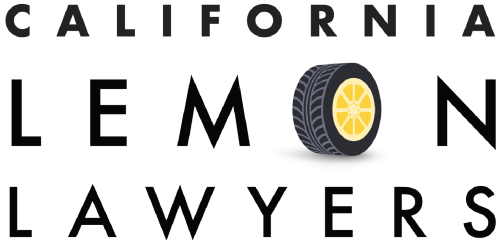Is there a used car lemon law in California?
Owning a used car that turned out to be defective can be a nightmare for any vehicle owner. Being unaware of your legal options regarding compensatory relief adds to the frustration and aggravation. In some instances, car owners mistakenly assume that used cars are not protected by the law.
Fortunately, nothing can be further from the truth. California’s Used Car Lemon Law offers consumers some of the strongest protections against warranty violations involving defective vehicles. All used cars purchased from a duly licensed dealership within the state that were sold with the original manufacturer warranty or a dealer’s warranty are covered under the law.
Table of Contents
- What is the Lemon Law for Used Cars?
- Your Rights Under the CA Used Car Lemon Law
- What Used Cars Are Covered by California Lemon Law?
- Types of Used Car Warranties
- Certified Pre-Owned Vehicles (CPO)
- What Makes A Used Car A Lemon?
- Used Car Lemon Law Exceptions
- How Long Are You Covered?
- What are Your Settlement Options?
- What To Do If Your Used Car is a Lemon
- Conclusion
What is the Lemon Law for Used Cars?
The Song-Beverly Consumer Warranty Protection Act (Civ. Code, § 1793.22) extends protection to all used cars, trucks, vans, and other used vehicles purchased or leased in California when these conditions are met:
- The used car is purchased or leased from a dealership or licensed retailer and not from a private individual. Private used car sales are not covered under the California Used Car Lemon Law.
- The original manufacturer’s warranty is still active or a dealer’s warranty comes with the purchase of the used car. The remaining time left on the original warranty protects the new owner.
- The used car has a material defect that severely affects the use, safety, and or resale value of the vehicle.
- The problem with the used vehicle persists even after repeated attempts by the manufacturer or authorized shop to fix the problem.
- The used car is kept in the shop for lengthy periods of time due to repair problems leaving the owner without a vehicle to use as they intended.
The law is designed to safeguard your consumer rights and protect you from warranty violations. If you purchased a used car without a written warranty, the Lemon Law does not apply to your vehicle, as explained by the CA Department of Consumer Affairs.
[Watch Video]: Used Cars Lemon Law in California: Crucial Facts to Remember
Your Rights Under the CA Used Car Lemon Law
When buying a used car in California, you have certain rights under the Car Buyer’s Bill of Rights:
- Right to Cancel Your Used Car Purchase. At the time of purchase, you have the right to a two-day cancellation option (requires additional payment and subject to certain exceptions). Under this option, you can take out the used vehicle for a test drive and have it inspected by your own trusted mechanic and if within two days from the date of purchase, you’re not satisfied with the vehicle’s performance, you can cancel the purchase and return the used car to the dealership.
- Inspection Report Copy. Used car dealerships are required by law to perform a thorough vehicle inspection on each car they advertise and sell as certified pre-owned. You have the right to a copy of this used car inspection report before finalizing your purchase.
- If you are unable to obtain a copy of the inspection report or want to verify its content, you have the right to obtain a National Motor Vehicle Title Information System (NMVTIS) report copy from www.vehiclehistory.bja.ojp.gov detailing the history of the used vehicle. For any issues about your used car purchase, you may also request assistance from CA government agencies listed here.
Related reading: Government Agencies To File A Report Or Complaint About A Defective Motor Vehicle

What Used Cars Are Covered by California Lemon Law?
CA Lemon Law covers the following types of used vehicles:
- Used cars, with an existing warranty, that were purchased or leased from an authorized dealership in California for personal, family, or household use;
- Used cars, with an existing warranty, that were purchased for business or commercial use and weigh below 10,000 lbs. gross weight – provided that only 5 or fewer vehicles are owned by or registered to the company.
- Used cars sold with a written warranty from the dealership or manufacturer.
- Used cars, with an existing warranty, that were purchased or leased by service members in the U.S. Armed Forces stationed in California, regardless if the vehicle was originally purchased or leased from outside the state.
- Used cars that were originally identified as lemon vehicles, repurchased as buybacks by manufacturers, and resold with extended warranties to consumers.
The type of used vehicles covered under Lemon Law includes cars, trucks, SUVs, RVs, etc. It does not include motorcycles and off-highway vehicles.
Types of Used Car Warranties
California Used Car Lemon Law applies to used vehicles that are purchased or leased with an express or written warranty. The types of used car warranties include:
Original Manufacturer’s Warranty
If the used car purchased from an authorized dealer has an unexpired manufacturer’s warranty, the remaining portion of the warranty remains valid and protects the new owner.
Written Dealership Warranty
Many used car dealers in California provide written warranties covering a set number of miles or months after the purchase (ex. 1000 miles or 3 months warranty). This type of warranty is enforceable under CA Lemon Law.
Extended Warranty or Ordinary Service Contract?
Used cars that were previously classified as lemons and repurchased as buybacks by manufacturers are often reconditioned and resold to consumers labeled on the title and registration as “Lemon Buyback.” Buyers of this type of used vehicle have the right to a full disclosure of the vehicle’s status and history.
Sometimes, so-called “extended warranties” provided by dealers are just repair servicing contracts and not full warranties that entitle you to compensation if the vehicle turns out to be defective. Check with the dealer and see if the warranty is the manufacturer’s original warranty or a full dealer’s warranty that provides for compensation under the law.
Implied Warranty of Merchantability
Used vehicles that are not sold “as-is” by a licensed dealership are covered by an implied warranty of merchantability. This means that the car is sold with a promise or guarantee that it will perform as promised. If your used car starts having persistent problems and you can prove that the defect existed at the time of purchase, you may have a case under lemon law even if there’s no written warranty.
Buy Here, Pay Here Dealers
“Buy here, pay here” used car dealers in California are required by law to provide a warranty with their vehicles. This usually comes in the form of a 30-day or 1,000-mile warranty (whichever occurs first) and is fully covered under California’s Lemon Law.
Always check your buyer’s guide to make sure that the used car you purchased comes with a valid manufacturer or dealer warranty. If you’re not sure which type of warranty covers your used car, consult with an experienced Lemon Law lawyer to get accurate information and guidance about your case.
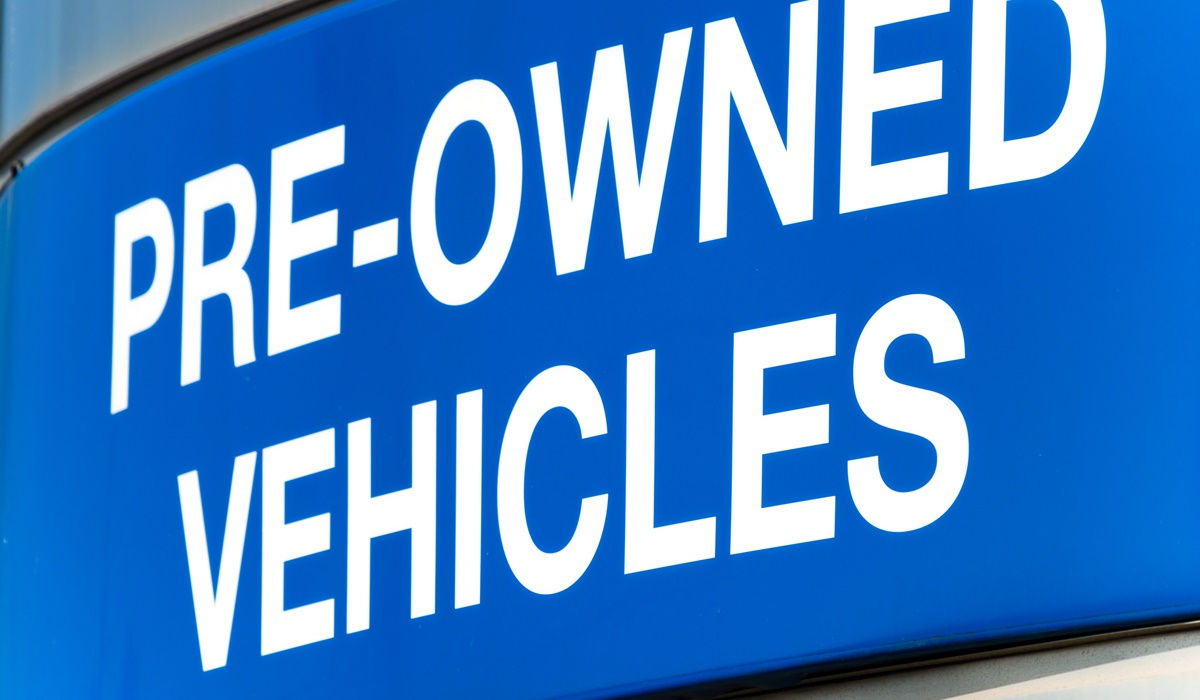
Certified Pre-Owned Vehicles (CPO)
What are Certified Pre-Owned Vehicles?
A used vehicle sold as a certified pre-owned vehicle (CPO) is one that has been inspected and reconditioned to meet minimum manufacturer standards. A vehicle cannot be advertised, labeled, or sold as “certified” without undergoing thorough inspection as required by law.
Auto manufacturers sell tens of thousands of certified pre-owned vehicles in California each year and most of these are usually 5 years old or less, have 60,000 miles or less on the odometer, and are sold with extended manufacturer’s warranties.
CPO Inspection & Certification
Dealers who sell CPO vehicles are required by law to conduct a thorough multi-system inspection of the used vehicle. If the vehicle is refurbished or reconditioned, it must pass minimum inspection standards to obtain manufacturer certification and can be sold with an extended manufacturer’s warranty.
Beware of CPO Fraud
All cars sold as certified pre-owned vehicles (CPO) must pass inspection and be certified by the manufacturer. In certain cases, however, manufacturers are legally prohibited from issuing certification. Used vehicles that are not eligible for certification include:
- Vehicles with inaccurate odometers.
- Vehicles sold “as-is”
- Vehicles previously damaged from collision, fire, or flooding.
- Vehicles without an inspection report.
Vehicles with these defects or conditions cannot be certified and if they’re sold as such, the dealership may be liable under the law.
Buying a Certified Pre-Owned Vehicle
When purchasing a used car labeled as “certified pre-owned” by the dealer, get a copy of the inspection report and check the history of the vehicle. You can also obtain a copy of the National Motor Vehicle Title Information System (NMVTIS) report on your used vehicle from www.history.gov. Dealers are required by law to provide a copy of the inspection report to you and disclose all pertinent information (ex. accidents and repair history) including those listed above that might preclude the used car from getting certified.
Most importantly, check if the used vehicle comes with the original warranty or an extended manufacturer warranty and for how long the warranty is in effect. A written warranty is crucial to filing a compensation claim in California.
What Makes A Used Car A Lemon?
If you’re experiencing persistent issues with your used vehicle, it could potentially be a lemon. You may be entitled to a buyback or vehicle replacement under any of these conditions:
Sold with Warranty
You must have obtained the vehicle from an authorized dealer complete with the original manufacturer’s warranty, extended manufacturer’s warranty, or dealership warranty. Without a written warranty, you don’t have a case.
Persistent Issues or Defects
If the issues or defects on your vehicle have not been fixed or resolved despite a number of visits to the shop, your car might be a lemon.
Repeated Repair Attempts
Manufacturers are required to try and repair any issues on the vehicle once these have been reported. The law provides for a certain number of repair attempts by the manufacturer before a claim for compensation can be filed.
Extended Repairs
The vehicle is kept in the shop for a lengthy period of time (more than 30 days) leaving the owner with no vehicle to use.
Related reading: What is Lemon Law Presumption?
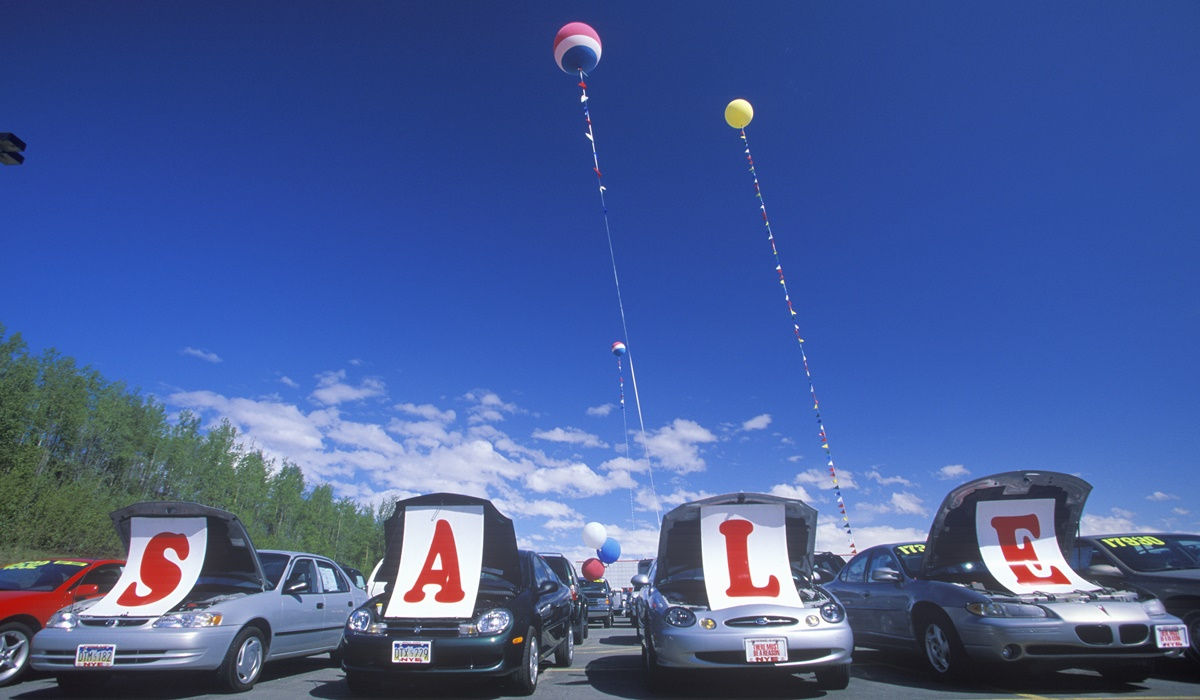
Used Car Lemon Law Exceptions
Are there any exceptions? When is a used vehicle not covered by lemon law?
In California, manufacturers and dealers are not required by law to compensate you for a defective vehicle under these circumstances:
- Private Sales: You purchased the vehicle from a private person and not from an authorized used car dealership. Private sales are not covered under CA Used Car Lemon Law. Even if the used vehicle you purchased still has existing manufacturer warranties, the manufacturer is not obligated to honor the warranty or compensate you, the new owner, for any defects if you purchased it from a private individual.
- Abuse and Non-Conformity: The manufacturer or dealer can contest your claim for compensation, if the issues on the vehicle are caused by deliberate abuse or if the terms of the warranty or prescribed vehicle usage or maintenance requirements are not followed by the owner.
How Long Are You Covered?
Within the Warranty Period
If the issues on your used vehicle emerge within the original manufacturer warranty period or during the extended warranty period in the case of a vehicle being sold as a CPO, you are entitled to compensation under the law.
Statutory Warranty Length
In California, there is a 4-year statute of limitations to file a breach of warranty claim. This is an absolute deadline and runs for four years based on when the owner should have suspected their vehicle was a lemon, usually based on the first repair attempt date.
What are Your Settlement Options?
If, after repeated attempts by the manufacturer or dealer to fix your used car, the problem persists, the vehicle may be deemed a lemon by the court under California Lemon Law. As the owner, you will be entitled to some form of compensation. Such settlement options include:
Vehicle Replacement
The manufacturer or dealer must replace your vehicle with a non-defective one that is closely similar to yours in terms of vehicle year, model, accessories, warranties, service contracts, and value.
Refund or Buyback
The manufacturer will pay you the full amount you paid for the used car including financing, service contract, extended warranty, and other charges subject to allowable deductions under the law. Related reading: What is Lemon Law Buyback in California?
Attorney’s Fee
In either of the settlement options described above, the manufacturer is responsible to shoulder the full cost of your attorney’s fees, court filing fees, etc.
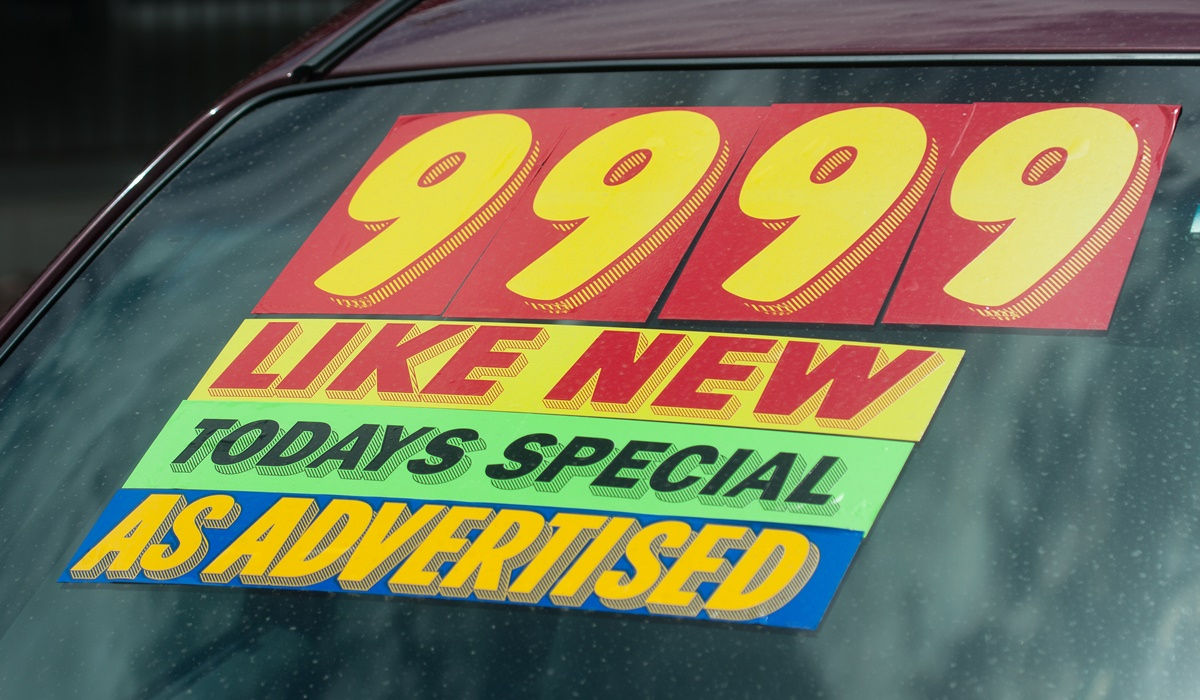
What To Do If Your Used Car is a Lemon
If you suspect that your defective vehicle is a lemon and are considering filing a claim for compensation, you will need to plan ahead, understand the Used Car Lemon Law process in California, and build up your evidence. Here are some steps on how to file a lemon law claim that you can take to ensure that your claim will prosper before a court of law:
- Consult with a California Lemon Law attorney at the outset. The earlier you can have an experienced and knowledgeable lawyer by your side to guide you through intricacies of the law and the claims process, the better your chances are of winning the case. As explained above, CA lemon lawyers collect 100% of their fees from the manufacturer during settlement. If you have a solid case, the best lawyers in the state will work for you under this contingency arrangement.
- Gather all documentation and evidence. Every document and receipt pertaining to your used lemon vehicle should be filed and ready to be used as evidence for your claim. These include: sales and service contracts, payment receipts, written warranties, inspection reports, work orders detailing the reported defects and corresponding repair dates, etc. Your lawyer will provide you with a laundry list of documents to prepare to get your case ready for filing. You might also want to note down your conversations with the dealer and repair mechanics as these can also be used as evidence for your case.
- Inform the manufacturer about the problem. Under the law, auto manufacturers are required to repair any reported defect on a vehicle sold with warranties to a consumer. A “reasonable” number of repair attempts must be done on the vehicle and only when this threshold is met can you file a claim for compensation. A skilled attorney can help you communicate your concerns to the manufacturer and determine if the repair attempts already done on the vehicle are sufficient to start the case filing process.
- Avoid making common mistakes. Consumers who try to be their own advocate and initiate a compensation claim under CA Lemon Law sometimes make mistakes that could potentially derail their case down the line. These missteps include: filing their case too early or too late, going into arbitration, joining a class action lawsuit, etc. A good lawyer can help you navigate around these pitfalls and guide you towards a favorable settlement of your claim.
More information: California Lemon Law FAQs
Conclusion
There’s absolutely no need to throw in the towel if you’re now in possession of a lemon. You have all the right to claim for legal redress and compensation under California’s Used Car Lemon Law. As a consumer, your rights are fully protected under the law.
Hopefully, the information provided above will help you get a better understanding of the law, the legal requirements, and the claims process. Get in touch with your attorney today to get an accurate evaluation of your case and start moving the claims process forward.
Featured Image: Photo by Jim Witkowski on Unsplash
